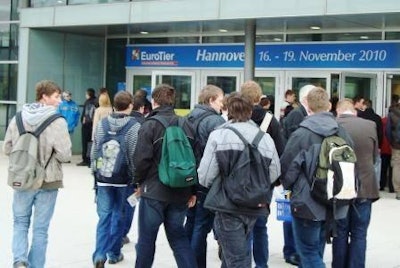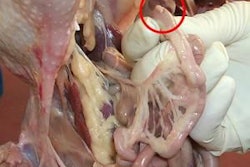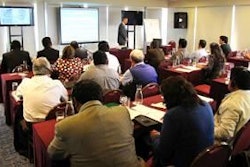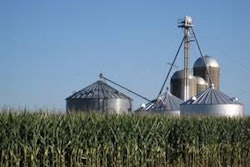
How do farmers access future developments in business? This, according to the organizers of international trade event EuroTier, is the key question that the exhibition hopes to address.
At the press opening of the Hannover-based show, which this year reports an increase in exhibitors and expected visitors, it was reported that, in the UK, France and Germany positive trends in the farming industry are continuing, and that the trend is strongest in Germany. Similar trends are being seen in Eastern Europe.
The climate for the pig and dairy industries has become much more favourable, and the Germany’s farmers are becoming more competitive. Business opportunities have improved and investment is increasingly appealing. Against this backdrop, farmers need to discover how to take their businesses forward, and EuroTier is positioning itself as the ideal location to do this.
This year, the commercial exhibition has attracted 1,939 direct exhibitors – 136 more than when the show was last held, making it, the organizers say, the leading world exhibition for modern farming. The event is increasingly international, and 40% of exhibitors now come from overseas. Among overseas exhibitors, Chinese companies are now ranked in the top ten by number of exhibitors.
CEO of the DLG, the Germany Agricultural Society, Dr Reinhard Grandke, commented: “With this impressive exhibition programme, unique in its completeness, EuroTier is the world’s top event of its kind and at the same time, the indispensable forum of professional animal production.”
EuroTier 2010 is expected to attract 120,000 visitors, who in addition to commercial show, will also access to a variety specialist areas and seminars. One such “special” is a focus on group housing of sows, with displays of relevant housing.
The night before the show officially opened, the European Pig Producers Club (EPP) hosted its pig event, which included two presentations examining the issue of sustainability and what it really means in the context of pig production. Presentations examined issues such as carbon footprint as a means of analysing the ecological efficiency of pig farming, and moving towards possible zero-carbon emissions in pig production.















